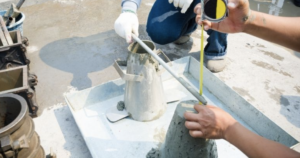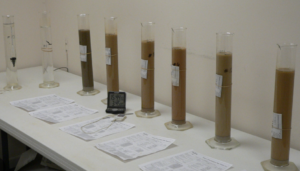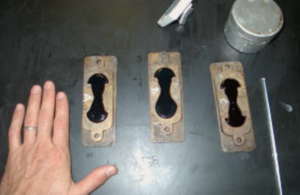How Do Soil Microbial Community and Enzyme Activity Tests Promote Sustainable Rice Planting in Traditional Paddy Ecosystems?
In traditional paddy ecosystems, rice cultivation is deeply intertwined with water cycles, soil organisms, and nutrient dynamics. To maintain high productivity without degrading the environment, soil health must be closely monitored and nurtured1. Among the most insightful indicators of soil health are microbial community composition2 and enzyme activity, which reflect the biological activity and nutrient cycling potential of paddy soils. Through advanced testing methods, farmers and researchers can promote more sustainable rice planting practices3 that enhance soil fertility, reduce chemical input reliance, and preserve the ecological balance.
Soil Microbial Biomass Carbon Tests to Evaluate Soil Fertility Potential in Continuous Rice Cropping Systems
Soil microbial biomass carbon (MBC) is a core metric for assessing the living component of soil organic matter4. In continuous rice cropping, repeated flooding and high nutrient demands can degrade microbial populations. MBC tests offer a snapshot of microbial health and soil fertility potential5.
Why It Matters:
- Indicates biological activity critical for organic matter decomposition.
- Reflects soil response to long-term fertilization or management changes.
- Helps assess whether soils are gaining or losing fertility under rice monoculture.
| MBC Level (mg/kg) | Soil Fertility Status | Recommended Action |
|---|---|---|
| 300 | High microbial fertility | Optimize input levels, monitor sustainability |
Tracking MBC over time ensures that continuous rice systems remain biologically resilient and productive.

Soil Dehydrogenase Activity Tests to Monitor the Health of Paddy Soils after Flooding and Draining Cycles
Dehydrogenase enzymes are directly involved in microbial respiration6. Because they are only active in living cells7, dehydrogenase activity is a highly sensitive indicator of microbial vitality8, especially in the unique alternating wet-dry cycles of paddy farming.
Applications in Paddy Soil Monitoring:
- Detects biological stress after prolonged flooding or drying.
- Evaluates the impact of different water management strategies (e.g., AWD—Alternate Wetting and Drying).
- Acts as an early warning system for soil fatigue or degradation.
| Dehydrogenase Activity (µg TPF/g/day) | Interpretation |
|---|---|
| 30 | High activity, healthy soil biota |
This test supports rice growers in adjusting irrigation patterns to maintain optimal biological conditions for yield and sustainability.
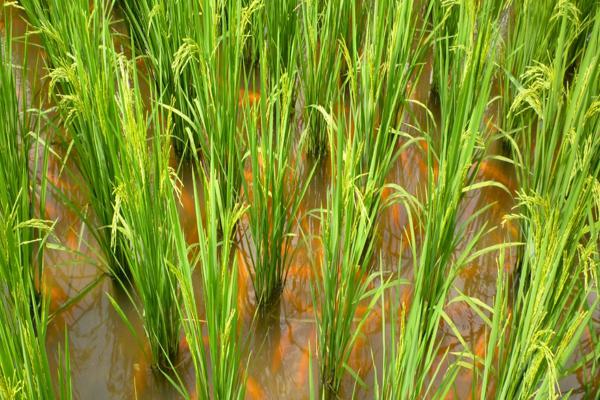
Soil Nitrogen-Cycling Microbial Community Analysis for Improving Nitrogen Use Efficiency in Rice Fields
Nitrogen losses from paddy fields are a major challenge. However, much of nitrogen’s fate depends on microbial transformations—from ammonification to nitrification and denitrification. DNA-based microbial community analysis helps identify and quantify the organisms responsible for these processes.
Microbial Groups of Interest:
- Ammonia-oxidizing bacteria (AOB)
- Nitrifiers and denitrifiers
- Nitrogen-fixing microbes (e.g., diazotrophs)
| Microbial Abundance (copies/g soil) | Nitrogen Process Affected | Management Implications |
|---|---|---|
| High AOB | Rapid nitrification | Use nitrification inhibitors |
| Dominant denitrifiers | Risk of N loss via N₂O | Shift to split or deep placement fertilizer |
| High diazotroph diversity | Natural N supply | Reduce synthetic nitrogen inputs |
By aligning nitrogen management with microbial ecology, rice farmers can boost efficiency and reduce environmental harm.

Soil Phosphatase Activity Tests to Enhance Phosphorus Availability in Low-Phosphorus Paddy Soils
Phosphatases are enzymes that liberate phosphorus from organic compounds, making it available for plant uptake. In many traditional paddy areas with low phosphorus soils, phosphatase activity is essential for ensuring adequate P nutrition—especially when synthetic P fertilizers are scarce or expensive.
Key Benefits:
- Indicates the soil’s biological capacity to mobilize phosphorus.
- Helps assess the impact of organic amendments (e.g., green manure, biochar).
- Supports decision-making for localized P management.
| Phosphatase Activity (µg PNP/g/h) | Phosphorus Status | Action Needed |
|---|---|---|
| 60 | High enzymatic P potential | Possibly reduce external P input |
This testing strategy enables precision phosphorus management, supporting sustainable yields while protecting waterways from P runoff.
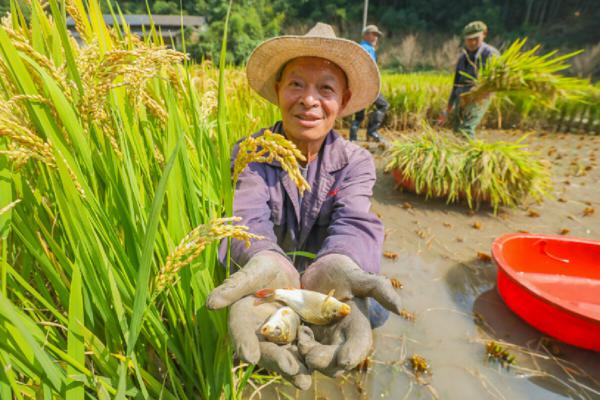
Conclusion
Soil microbial and enzyme activity tests bring biological intelligence into rice field management. They help farmers and agronomists understand how traditional paddy soils function below ground—and how to guide them toward long-term productivity without degrading the ecosystem. From microbial biomass and enzyme levels to nitrogen cycling and phosphorus mobilization, these tools are key to sustainable rice intensification that respects both tradition and the environment.
-
Understanding the significance of soil health can lead to better farming practices and environmental sustainability. ↩
-
Exploring this topic reveals how microbial diversity impacts soil fertility and ecosystem health. ↩
-
Discovering sustainable practices can help farmers improve yields while protecting the environment. ↩
-
Understanding this concept is crucial for soil health and fertility, making it essential for sustainable agriculture practices. ↩
-
Exploring this link can provide insights into improving soil management and enhancing crop yields. ↩
-
Understanding microbial respiration is crucial for grasping how microorganisms contribute to ecosystems and nutrient cycles. ↩
-
Exploring the role of living cells can enhance your knowledge of cellular functions and their impact on life. ↩
-
Learning about microbial vitality helps in assessing ecosystem health and the effectiveness of agricultural practices. ↩

